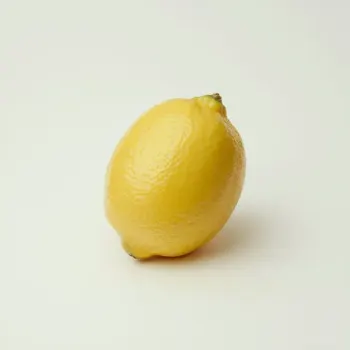Lemon and lime juices are acidic, flavorful liquids from the fruits of Citrus limon and Citrus aurantiifolia/Citrus latifolia trees, respectively. They're rich in vitamin C and used distinctively in beverages, seafood dishes, baking, dressings, marinades, with subtle differences in taste and culinary applications.

Lemon juice is a tart, bright liquid extracted from the fruit of the Citrus limon tree. It's known for its high vitamin C content and is used in a variety of culinary and non-culinary applications.

Lime juice comes from the fruit of the Citrus aurantiifolia or Citrus latifolia tree. It is similar to lemon juice but has a more bitter and complex flavor. Limes are also rich in vitamin C and add a distinct zest to dishes and beverages.
Lemon juice is generally more sour and less sweet compared to lime juice. Lime juice, on the other hand, has a more bitter and complex taste. Lemons are typically larger and have a thicker skin, while limes are smaller with a thinner skin. The two juices also differ slightly in their nutritional profiles and culinary applications.

Your ultimate Recipe Box, Meal Planner, and Cooking Class all in one
Best used in lemonade, hot teas, and cocktails like whiskey sours. Lemon juice offers a refreshing sourness and can brighten the flavors of a drink. When used in these beverages, expect a zesty and clean citrus note. Ideal for mojitos, margaritas, and non-alcoholic limeades. Lime juice contributes to a nuanced tartness and complexity. Its unique flavor profile is essential in many tropical and Mexican-inspired drinks.
Preferred in dishes like grilled fish, seafood pasta, and ceviche. Lemon juice not only adds freshness but also helps to cut through the richness of oily fish. It can also act as a tenderizer for delicate seafood proteins. Used in tacos, Thai curries, and ceviche. Lime juice pairs well with spices and can bring out the vibrancy in a variety of seafood dishes. It's also essential in ceviche for its ability to 'cook' the fish with its acidity.
Commonly used in lemon meringue pie, lemon bars, and lemon loaf. It provides a strong citrus flavor that complements sweet baked goods and can also be used to activate baking soda in recipes. Featured in key lime pie, lime-infused cupcakes, and glazes. Lime juice offers a more nuanced tartness and can add an exotic twist to traditional desserts.
Perfect for vinaigrettes, marinades for chicken, and Greek salads. Lemon juice's sharpness makes it suitable for cutting through fats and balancing the flavors in a dressing or marinade. Favoured in salsas, guacamole, and Thai marinades. The distinctive flavor of lime juice works well with the complexity of spices and herbs found in these dishes.
Both lemon and lime juice are low in calories and high in vitamin C, though lemons usually contain slightly more vitamin C than limes.
| Nutrient | Lime Juice ( per 100g ) | Lemon Juice ( per 100g ) |
|---|---|---|
| Fat | 0.1g | 0.3g |
| Protein | 0.4g | 1.1g |
| Calories | 25 | 29 |
| Potassium | 117mg | 138mg |
| Vitamin C | 29.1mg | 38.7mg |
| Carbohydrates | 8.4g | 9.3g |
You can substitute lime juice in lemon bars for a different flavor profile, but expect a more tropical, slightly bitter taste compared to the classic tartness of lemon bars.
Both can be used in marinades, but lemon juice is generally better for lighter, Mediterranean-style dishes, while lime juice is ideal for more robust, spicy marinades.
Lemon juice is slightly more acidic than lime juice, which can affect the taste and cooking process in recipes.
While traditional margaritas call for lime juice, lemon juice can be used for a different take on the cocktail, creating a 'lemon margarita'.
Certain dishes, such as key lime pie or lemon meringue pie, rely on the specific flavor of their named citrus and should not be substituted if you want to achieve the classic taste.